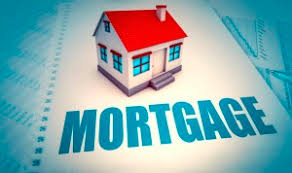If you are nervous about the home mortgage process, you are not alone. According to the consumer research report, the first mortgage agreement causes higher stress rates among borrowers. Fortunately, knowing about mortgages not only reduces your anxiety but also helps you secure a better home loan. Here are four things to know about mortgages when you buy a home.
1) You don’t have to pay a 20% down payment.
The minimum mortgage down payment ranges from 0% (for V.A. home loans and rural mortgages) to 20% (for non-government loans without mortgage insurance), including multiple alternatives.
There are 97% of mortgage loans that will be granted to borrowers with above-average credit ratings (the Conventional 97), and almost all others require only a 3.5% down payment on their loans.
Additionally, there may be a piggyback loan for consumers with ten percent down payment terms along with 3% credit alternatives provided by Fannie Mae, Freddie Mac, and programs such as Home Ready. So, you don’t need to make a down payment of 20% to purchase a home.
2) No Requirements for Perfect Credit
Many mortgage programs are designed to make homeownership affordable for new buyers who may be younger, have lower incomes, and have lower credit scores.
For instance, the Federal Housing Administration (FHA) guarantees mortgages to borrowers with credit scores near 500. And, in some cases, FHA-approved loans to borrowers with no credit score.
In addition, Freddie Mac and Fannie Mae, which buy and sell most housing loans in the U.S., grant loans with FICO score down to 620, as does the V.A. loan of the Department of the Veterans Affairs; and the U.S. Agricultural Department with its USDA loans. Meanwhile, some mortgage lenders approve loans with a rating below 600.

3) The Seller Can Pay the Closing Costs for You
When you buy property, some costs are part of your transaction. These include title insurance fees, escrow fees, lender costs, home inspections, home appraisal services, and much more.
There are numerous ways to get help from others. The sellers may pay your closing costs if you lack cash or don’t want to repay yourself.
i) Request the seller to pay your expenses
It does not matter whether you pay $295,000 for the house or bid $300,000 and request the seller to pay $5,000.
ii) Or request the lender to pay your costs
Most lenders will demand you pay a higher interest rate for the mortgage. Generally, raising your interest rate by 25 basis points (0.25%) will fully cover your expenses. This is called a zero closing cost for a mortgage loan.
iii) Finally, you can request the government to repay your expenses.
Many special grant programs are designed for first-time homebuyers. They aim to assist the borrowers with the closing costs or the down payments.
4. You Can “Test Drive” Mortgages
You can contact a lending institution and request pre-approval of the home mortgages. In this way, you’ll learn the type of loan you qualify for, its cost, and the possible alternatives. The loan pre-approval process can be completed in minutes.
What is the interest rate of a home mortgage today?
Almost all home buyers in the United States use mortgages to buy new homes. Typically, you get anxious about the whole loan process. These things to know about mortgages when you buy a home are essential. The more you know, the more you’ll benefit. Visit our website RateChecker and get your mortgage interest rate now. More so, to start the process, your social security number is not required. However, all quotes need access to your existing mortgage accounts only.
Generated with WriterX.ai — best AI tools for content creation

